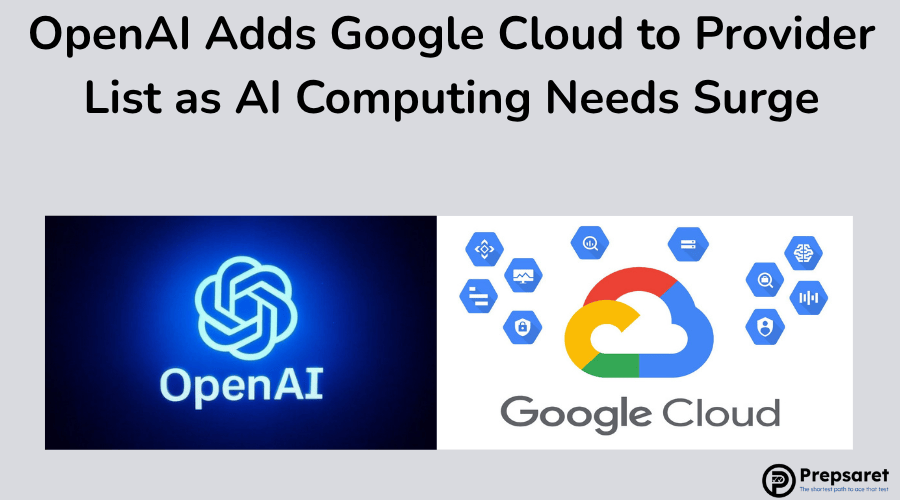OpenAI, the company behind ChatGPT, has officially added Google Cloud—owned by Alphabet —to its lineup of cloud providers, according to a newly updated vendor list on its website.
This move is part of the organization’s strategy to keep up with the rapidly increasing need for computing power driven by AI training and deployment.
In addition to Google, OpenAI continues to use services from Microsoft, Oracle, and CoreWeave. The collaboration with Google was finalized in May following prolonged negotiations, as first reported by Reuters in June.
The addition of Google to OpenAI’s cloud ecosystem reflects the growing strain that AI development places on computing infrastructure and highlights the strategic shifts companies must make to stay competitive in the AI race.
While Microsoft remains a key ally—having provided exclusive cloud services via Azure until early this year—OpenAI has clearly signaled its intent to widen its computing base.
Related story: Google to Offer Steep Cloud Discounts to U.S. Government Amid Budget Push
Diversifying Compute Partnerships in a Competitive AI Landscape
This is not OpenAI’s first move to expand its infrastructure partnerships. Earlier in 2024, it joined forces with SoftBank and Oracle on the ambitious $500 billion Stargate project—a large-scale infrastructure initiative aimed at addressing future AI computational needs.
OpenAI also inked multi-billion-dollar agreements with CoreWeave, further boosting its processing capacity.
By incorporating Google Cloud into its roster, OpenAI reduces its reliance on Microsoft, which had long been its primary and exclusive infrastructure provider.
According to a source cited by Reuters, conversations between OpenAI and Google had taken place over several months but were stalled initially due to exclusivity constraints tied to Microsoft.
These restrictions have since lifted, allowing OpenAI to formalize its agreement with Google.
The growing web of partnerships indicates that the demand for compute resources in AI is forcing even major players like OpenAI to think beyond single-provider ecosystems.
The company’s recent efforts underscore a broader industry trend: AI firms are increasingly looking to multiple vendors to secure the infrastructure they need to innovate, scale, and remain resilient in a fast-evolving technological environment.
As AI models become larger and more resource-intensive, collaborations like these will likely become the norm. OpenAI’s latest moves reflect not just a response to present demands, but a strategic blueprint for sustaining future growth.
Read next: Microsoft and Idaho Lab Use AI to Fast-Track Nuclear Plant Licensing
Thinking about advancing your career?
Check out our collection of certification prep resources designed to boost your skills, help you manage resources effectively, and stay ahead in your field:
- CompTIA Certification Resources – Strengthen your expertise in IT support, networking, and cybersecurity.
- HR Certification Study Resources– Understand the essentials of HR, including compliance and strategic planning.
- PMP Exam Preparation – Sharpen your project management abilities, from budgeting to resource coordination.
- Praxis Test Study Tools – Get ready for your teaching certification with in-depth study guides, practice exams, and state-aligned content.

